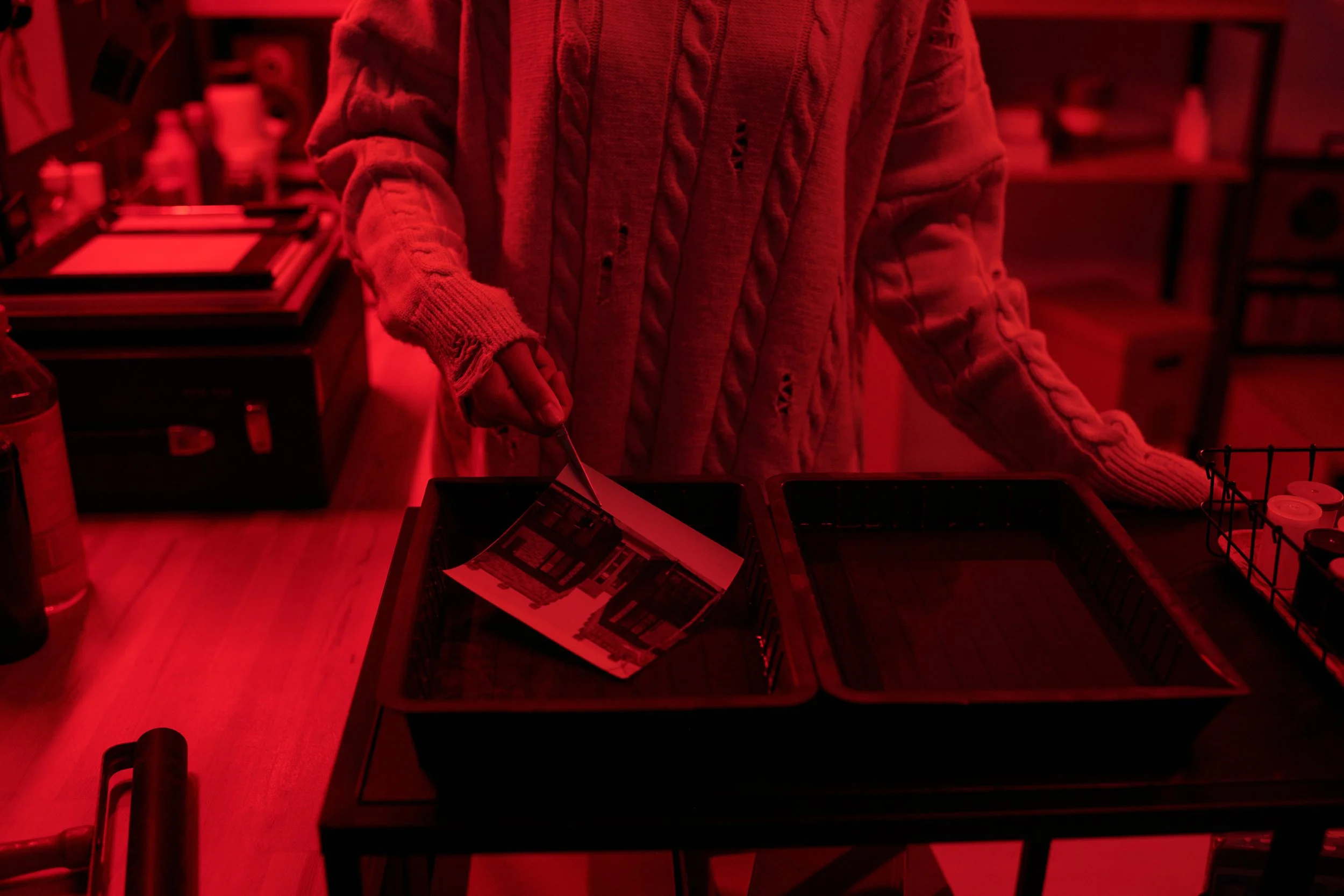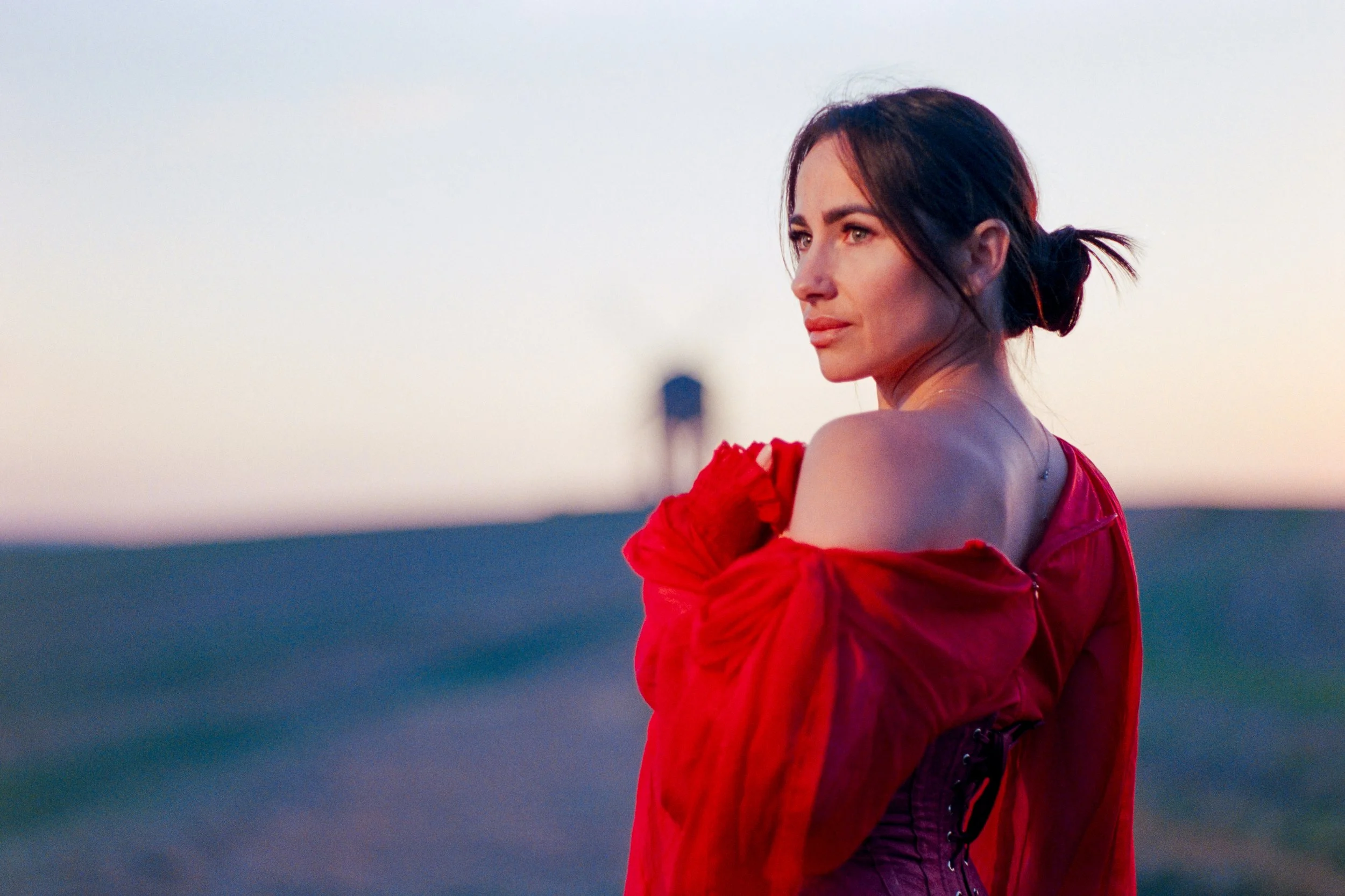
The Cinematic Notebook
The craft behind our portraiture and film development.
How This Notebook Connects to Film Photography and Film Development
Every article in this archive reflects the full analogue workflow used by Liquid Light Whisperer and Liquid Light Lab — from motivated lighting and optical rendering through to controlled development and high-dynamic-range scanning. The same discipline documented here is applied to commissioned portrait work and to every roll processed in the lab.
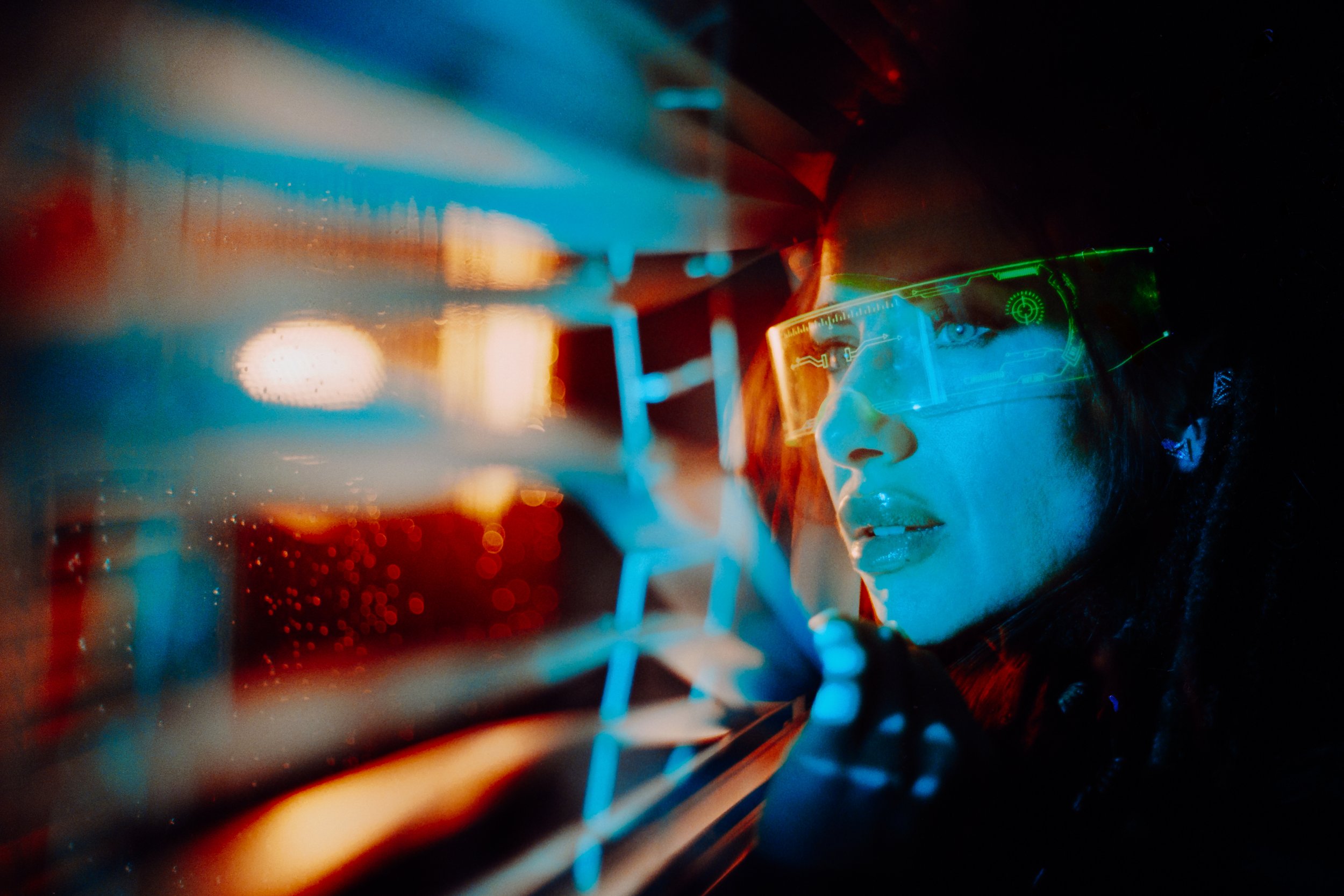
Chiaroscuro, Part III: Control, Containment, and the Discipline of Light
Once a lighting ratio has been established, the greatest threat to chiaroscuro is not the key light itself, but everything that happens around it. Spill, uncontrolled bounce, secondary reflections, and environmental lift can quietly erode contrast and flatten structure, particularly in confined or visually complex spaces. Cinematographic lighting does not solve these problems by adding more illumination. It solves them by shaping, subtracting, and containing the light that already exists.
This article examines how chiaroscuro is maintained when the environment becomes part of the challenge rather than a neutral backdrop, using a constructed interior night scene at the Liquid Light studio as a working case study.
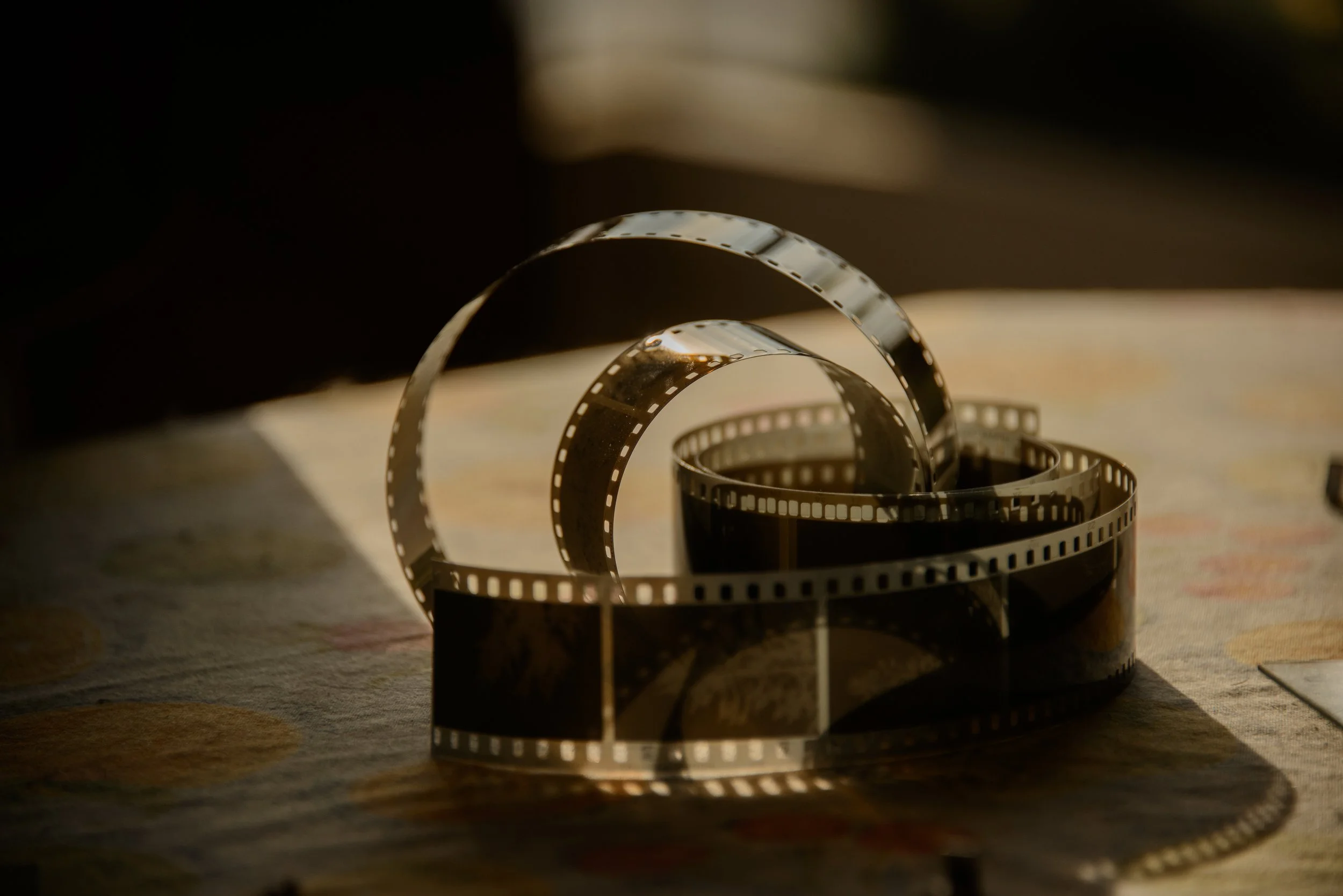
Lens, Film, Chemistry — The Three Decisions That Define Cinematic Photography on Film
Across decades of cinematography and still photography alike, three decisions consistently govern the final image. They operate at different stages of the process, but together they form a closed system. If one is misjudged, the others cannot compensate. When they are aligned, the photograph holds together with coherence and permanence.
Those three decisions are lens selection, film stock, and chemical processing. Respectively, they define how light is drawn, what kind of record is made, and how that record is stabilised over time. Understanding them as a unified structure is essential to understanding how cinematic photographs on film are actually built.
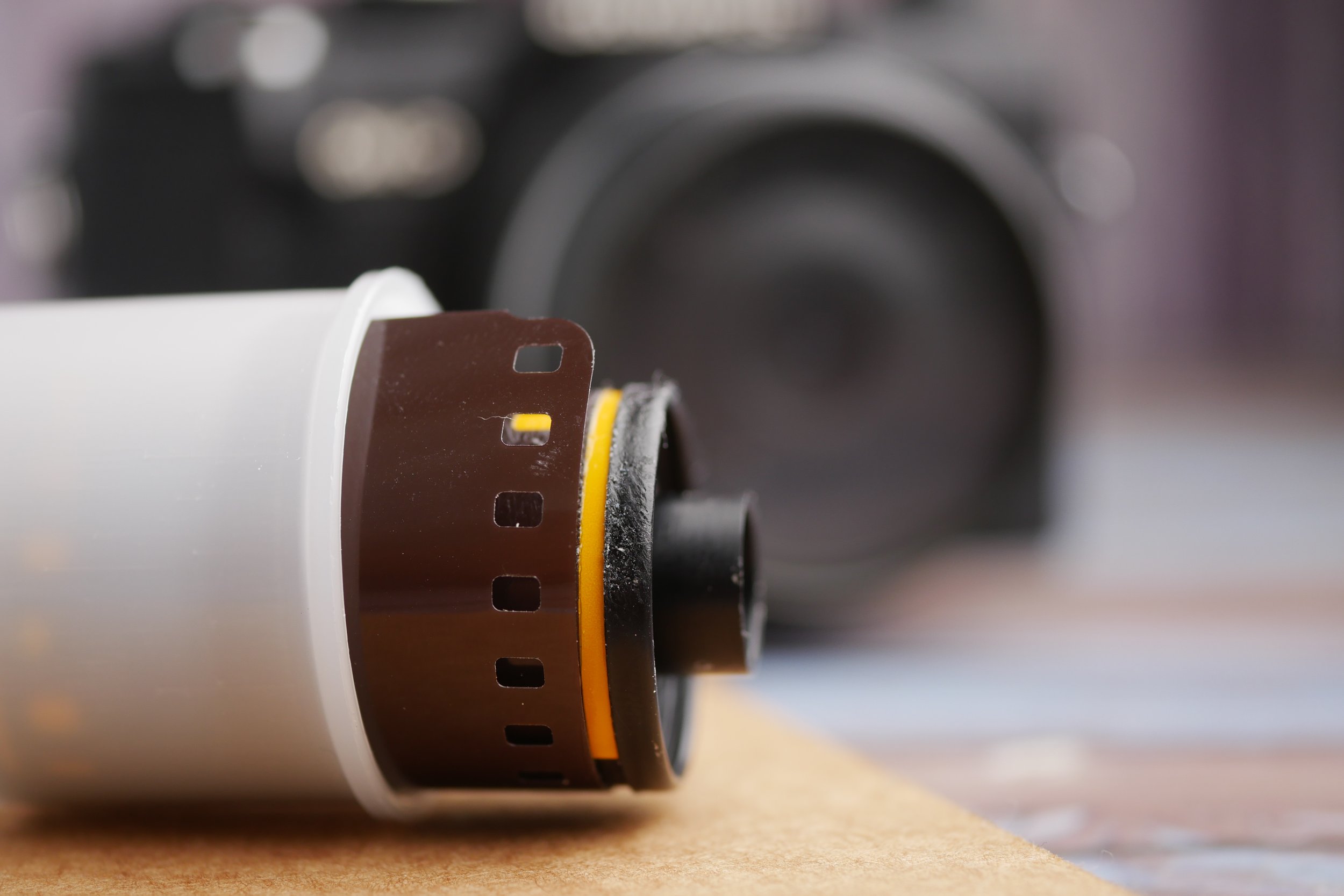
Full-Stack Film Photography Workflow: How Cinematic Film Photographs Are Made End-to-End
This article explains how a full-stack film photography workflow operates in practice, why each stage matters, and how lighting, optics, film, chemistry, and scanning function together as a single authored process.
Within this workflow, a photograph is not considered finished at the moment of exposure. Exposure is one stage in a longer chain that begins with lighting intent and ends with density-accurate translation of the negative. Each decision is made with knowledge of what follows. Nothing is isolated, outsourced, or treated as a corrective safety net. The image is constructed deliberately from first constraint to final output.

Directional Light on Film: Building the Chiaroscuro Portrait (Part II)
Chiaroscuro begins with a simple idea: the difference in brightness between the lit side of the subject and the shadow side. This difference is the light ratio, and it determines how sculptural or gentle the portrait will appear.
A small difference between the two sides creates a subtle, rounded shape. A larger difference produces the recognisable sculptural depth associated with classical portraiture and mid-century cinema. At even stronger ratios, the shadows begin to take on narrative weight, and the illuminated planes appear almost architectural.

Directional Light on Film: The Foundations of Depth, Shape, and Tonal Control (Part I)
Chiaroscuro is the controlled use of directional illumination to create depth, dimensionality, and tonal separation inside a portrait. The term is sometimes used loosely to describe dramatic or shadow-heavy images, but that simplification does not describe its real function. Chiaroscuro is not an effect. It is not an aesthetic layer applied to an image. It is a precise lighting system that defines the physical structure of a portrait through the relationship between illuminated planes and shadow planes.
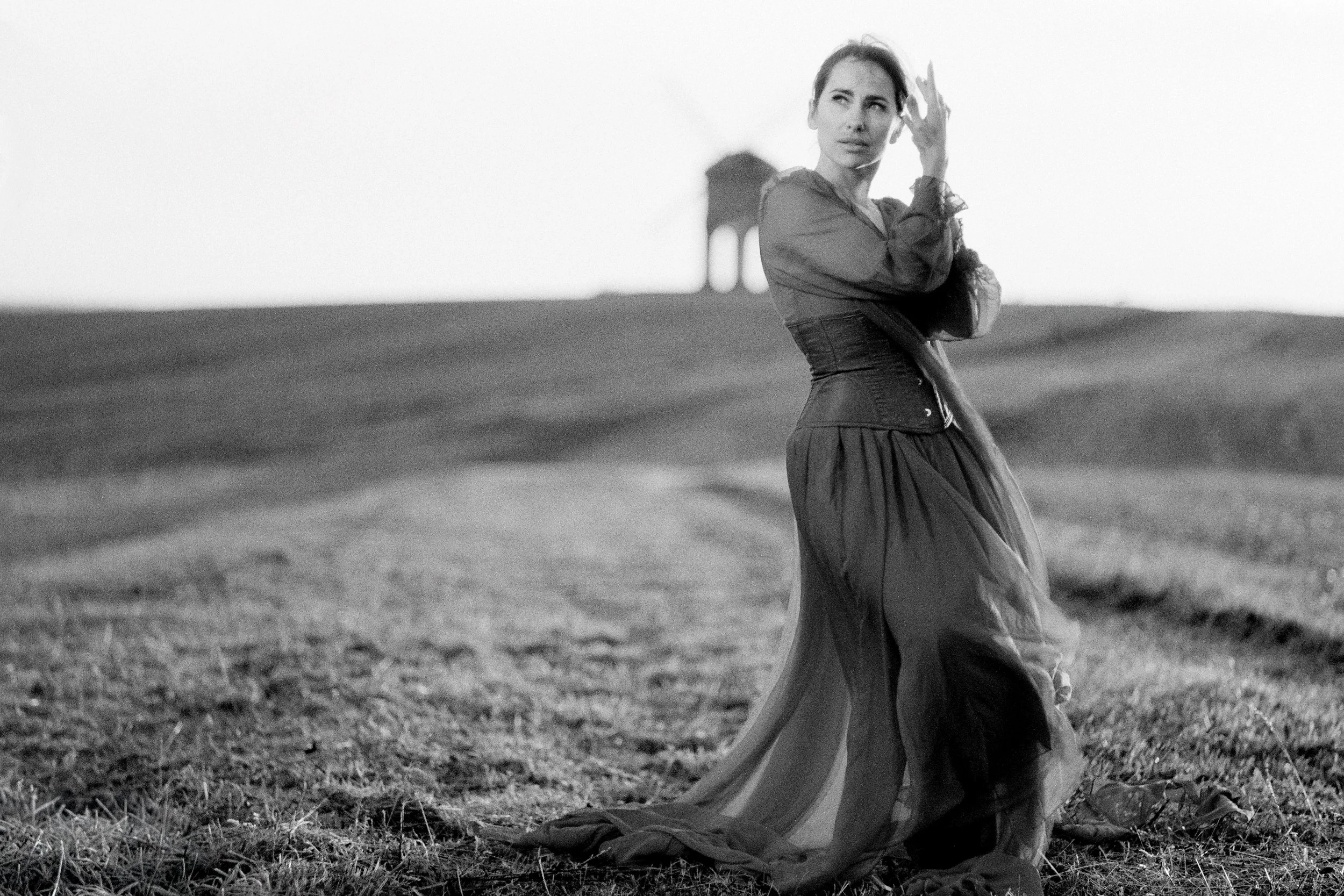
Why Analogue Portrait, Wedding, and Event Studios Are Rare in the UK: Infrastructure, Craft, and the Global Landscape
Analogue film photography is a working professional medium in cities such as Los Angeles, Berlin, Tokyo, and New York. Portrait studios, wedding photographers, and event specialists in those places continue to work on film because the infrastructure that supports analogue workflows never disappeared. Labs stayed open, cinematographers kept shooting on film, universities continued teaching it, and creative industries carried on commissioning it as part of their normal practice. Film remained part of the working vocabulary rather than becoming a curiosity. I’ve worked throughout the UK, USA and Europe over the decades, and since the late 1990’s the differences have grown between countries and continents for very different reasons.

Hellraiser Actor, Simon Bamford — A Portrait Session on Real Film
Across theatre, film, and television, Simon Bamford has built a career grounded in precision and physical awareness. Audiences know him first through the enduring imagery of Hellraiser and Nightbreed — roles that made him a figure within the language of British cult cinema — yet his roots are theatrical. Trained for the stage, his work is defined by an understanding of stillness: the ability to hold attention through exact posture and measured timing. That quality is rare; it cannot be taught quickly, and it photographs differently from performance designed for the screen.

Newborn on Real Film: A Three-Week Story in Light
It’s a beautiful thing when someone trusts me to photograph their newborn. These aren’t just pictures — they’re the first memories of a life just beginning. One day, this little girl will show these portraits to her own children and grandchildren. They’ll see the faces of their ancestors, the hands that first held their mother and grandmother, and the beginning of their family story.

Launching Liquid Light Lab: A Boutique Film Development Service for the UK
Film photography deserves more than a production line. That’s why I started Liquid Light Lab — a hand-crafted film processing and scanning service built by a photographer, for photographers. The Lab is now open, and it’s already been trusted with rolls that mean the world to people across the UK.
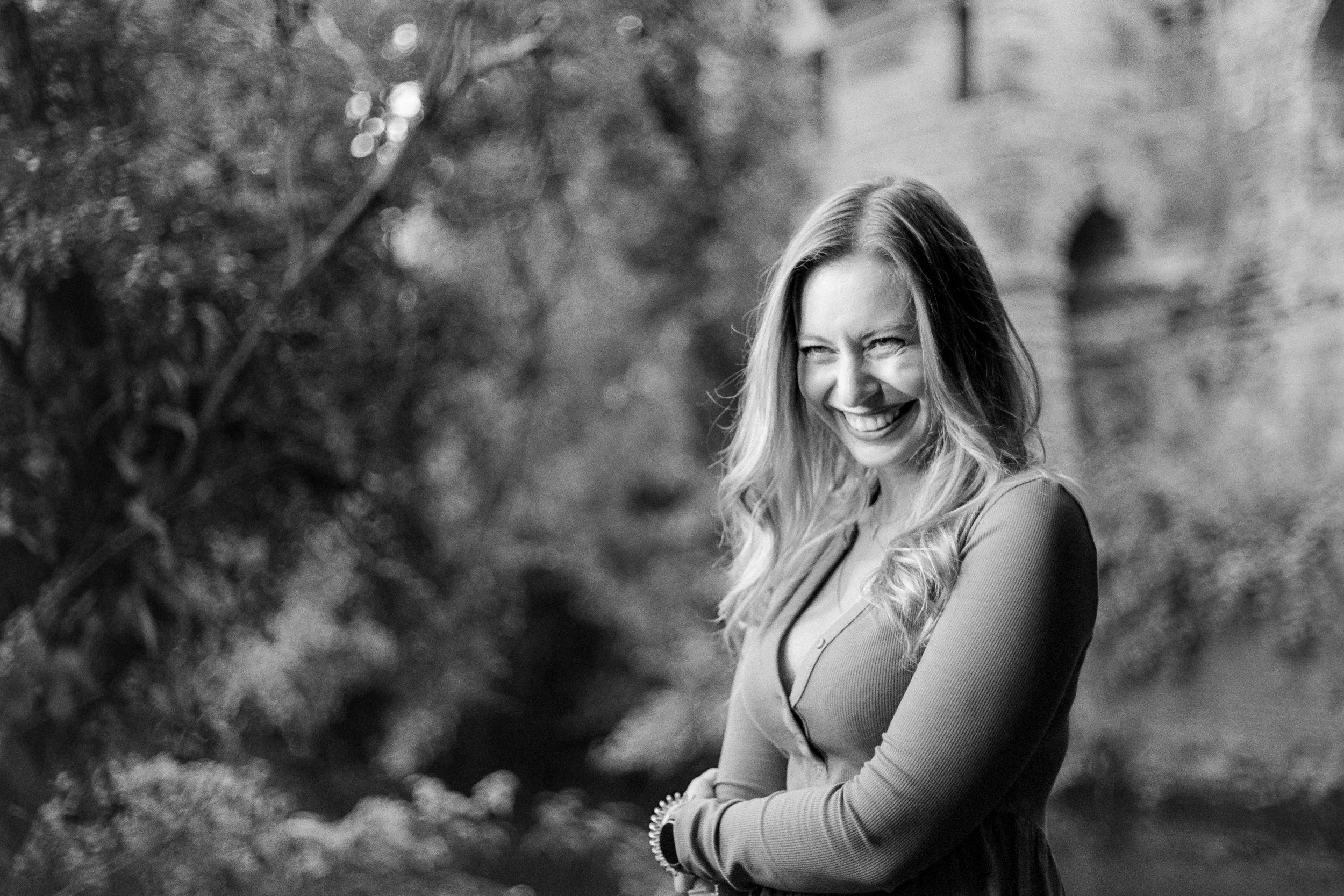
Cinematic Portraits on Location: The Anatomy of a Shoot
Most people think of portraits as studio headshots under flat lights. Safe, predictable, and forgettable. But a portrait doesn’t have to be like that. At Liquid Light Whisperer, every portrait session is cinematic. On location, I create not just an image, but a scene — a memory made real, captured on film.
This article walks you through exactly what happens when you book a cinematic portrait shoot with me, from the first call to the final photographs. If you’re considering a portrait session, this is what you can expect.
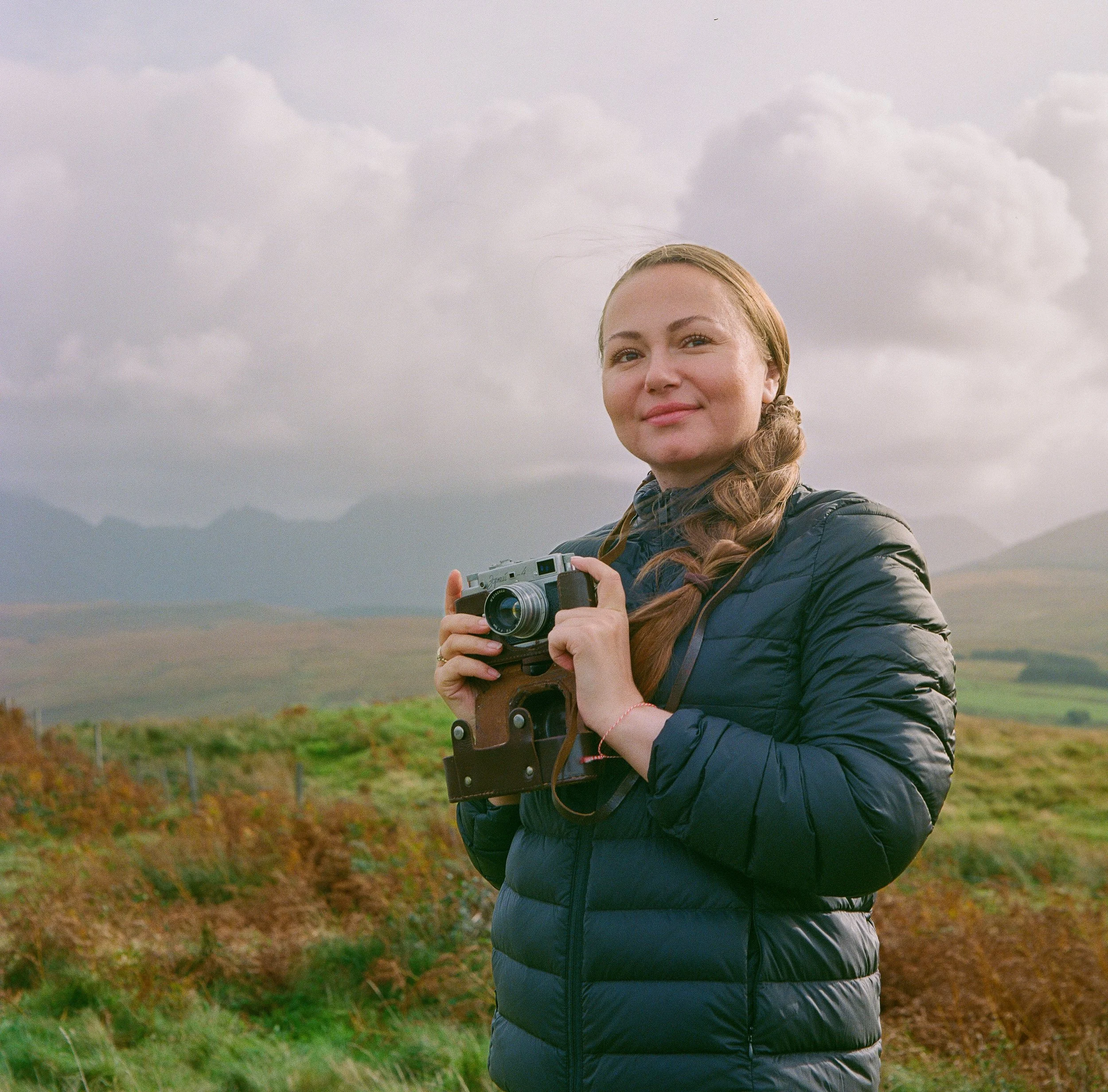
Film Photography: Authentic Portraits That Last a Lifetime
In today’s world, it’s easy to confuse digital editing with photography. Scroll through social media and you’ll see endless images smoothed, graded, and altered until the original moment is barely recognisable. That isn’t photography — it’s post-production. It’s editing.

Working with Models on Film – Setting Expectations
Shooting with film doesn’t just change how a photographer works — it changes how a model experiences the shoot. For someone used to digital cameras firing hundreds of frames a minute, the film process feels different: slower, more deliberate, sometimes even unnerving at first.
That’s why setting expectations is crucial. When a model understands what film brings — the rhythm, the limitations, the rituals — it transforms the session from uncertainty into collaboration. At Liquid Light Whisperer, this conversation happens before the first roll is loaded, because trust is as important as light.

Why Film Photography Feels Alive in the Digital Era
Digital photography gave us precision, speed, and infinite repetition. It perfected the technical image — but in doing so, it stripped away something that analog never lost: a sense of life.
Film photography endures because it feels different. It slows us down, resists instant gratification, and produces images with texture and presence. In a world of disposable content, film stands out as something alive.
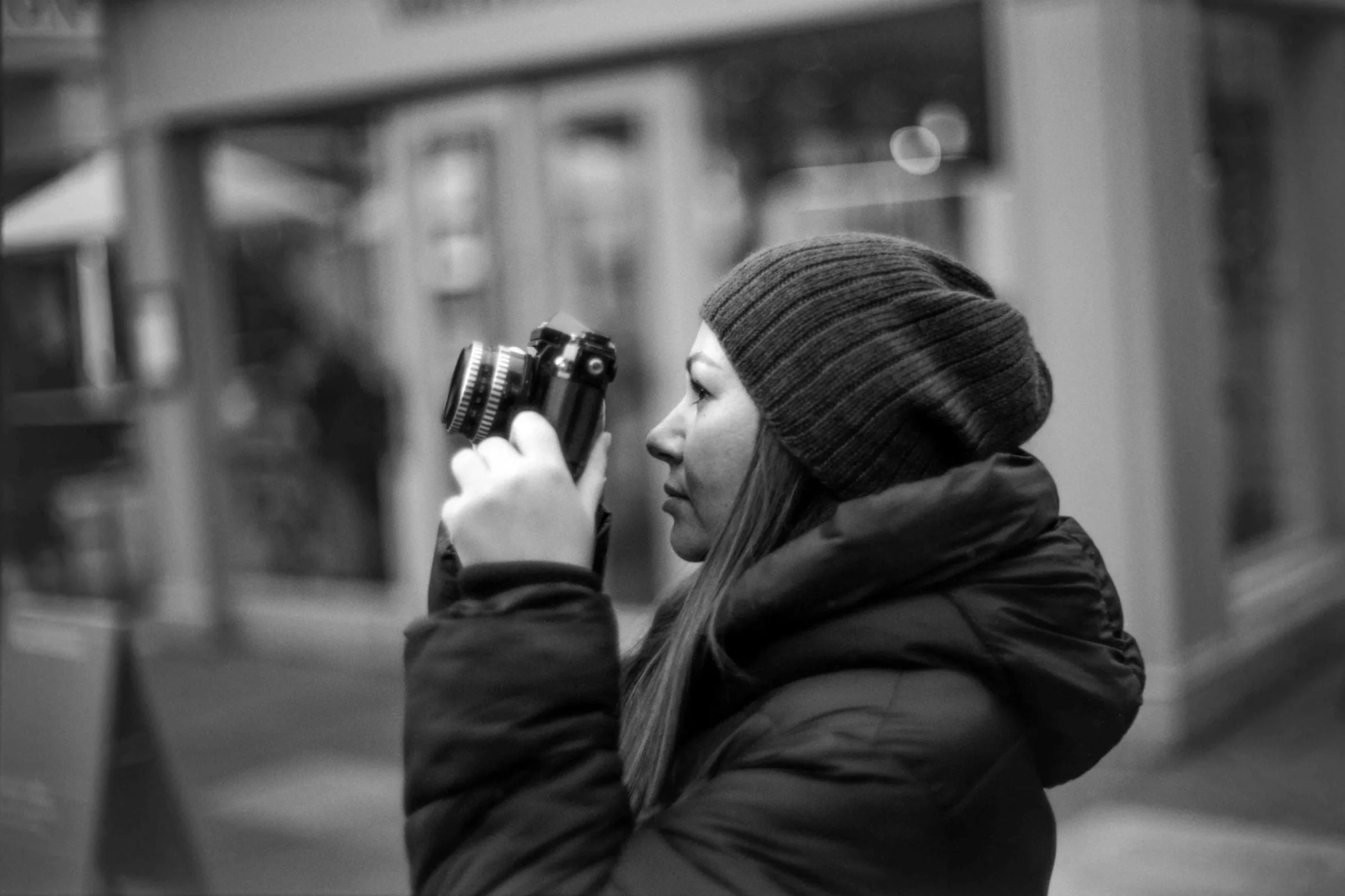
Announcing the Opening of Liquid Light Lab
I am pleased to announce the launch of Liquid Light Lab — a dedicated film processing service built for those who value craft, character, and precision in their analogue photography.
For years, I’ve been immersed in both sides of the photographic world — creating work with musicians, Hollywood actors, directors, and everyday clients who simply wanted something exceptional, and guiding fellow photographers through the nuances of analogue technique. Alongside this, I’ve refined my own approach to developing film — an approach rooted in consistency, detail, and the same artistic sensibility that runs through my photography.
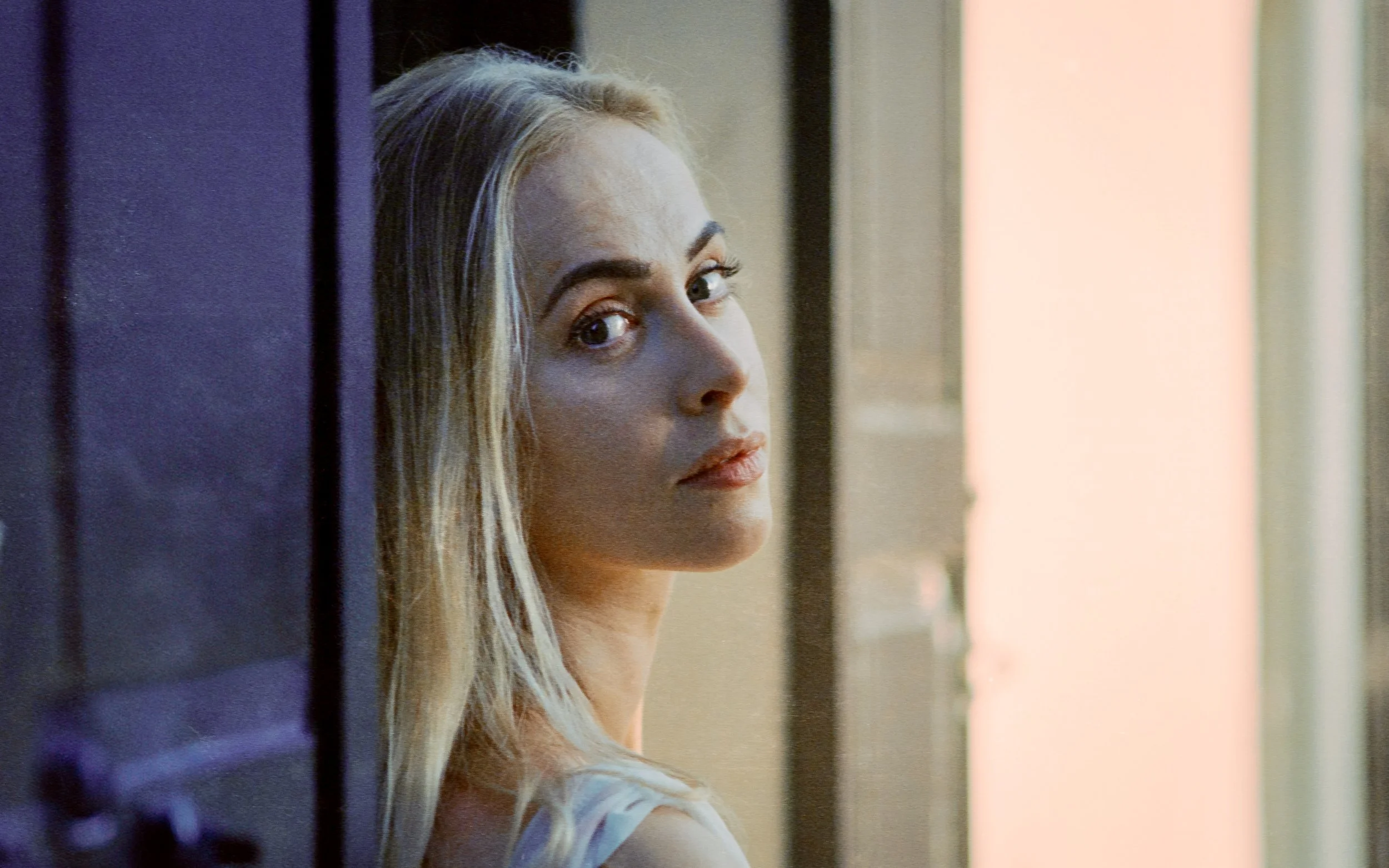
Lenses that Render Light Uniquely – Vintage Glass Magic
Where modern optics are designed to correct, suppress, and polish, older lenses allow light to express itself in ways that feel alive. The edges aren’t always sharp. The coatings flare in unpredictable halos. The bokeh swirls or doubles or melts away entirely. What many engineers considered flaws, photographers now treat as signatures — fingerprints left by history on light itself.

Analogue as Memory – Why Negatives Outlast the Cloud
When an image is exposed on film, it isn’t yet a photograph. It lives invisibly in the emulsion, suspended between existence and nothingness — a latent ghost of light. At this stage it can still be erased, fogged, or lost entirely, but it is there, waiting. Only when it meets developer does it reveal itself, and only when it meets fixer is it frozen forever. That alchemy — the moment when something ephemeral becomes permanent — is what makes film different. Memory doesn’t just appear; it is conjured, stabilised, and preserved.

A Timeless Developer for Modern Eyes: 510 Pyro Review
Pyro-based developers have a rich history dating back to the very origins of photography in the 1830s. Early photographic pioneers in England—including William Henry Fox Talbot—experimented with gallic acid and its derivatives, such as pyrogallol (the chemical foundation of pyro developers).

A Film Photography Adventure with Craig Sheffer
Every great journey begins with a spark. In this case, it started as a simple phone call: Craig Sheffer—star of A River Runs Through It, directed by Robert Redford and co-starring Brad Pitt—invited me on a road trip to commemorate the film’s 30th anniversary.
